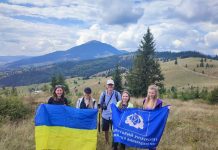More than 100 civil society organisations from across the UK and world have today branded the government’s AI Summit as “a missed opportunity”.
In an open letter to Prime Minister Rishi Sunak the groups warn that the “communities and workers most affected by AI have been marginalised by the Summit” while a select few corporations seek to shape the rules.
The letter has been coordinated by the TUC, Connected by Data and Open Rights Group and is released ahead of the official AI Summit at Bletchley Park on 1 and 2 November.
Signatories to the letter include Major and international trade union confederations – such as the TUC, AFL-CIO, European Trade Union Confederation, UNI Global, International Trade Union Confederation representing tens of millions of workers worldwide,International and UK human rights orgs – such as Amnesty International, Liberty, Article 19, Privacy International, Access Now,Domestic and international civil society organisations – such as Connected by Data, Open Rights Group, 5 Rights, Consumers International and Tech community voices – such as Mozilla, AI Now Institute and individuals associated to the AI Council, Alan Turing Institute & British Computing Society
Highlighting the exclusion of civil society from the Summit, the letter says:
“Your ‘Global Summit on AI Safety’ seeks to tackle the transformational risks and benefits of AI, acknowledging that AI “will fundamentally alter the way we live, work, and relate to one another”.
“Yet the communities and workers most affected by AI have been marginalised by the Summit.
“The involvement of civil society organisations that bring a diversity of expertise and perspectives has been selective and limited.
“This is a missed opportunity.”
Highlighting the Summit’s lack of focus on immediate threats of AI and dominance of Big Tech, the letter says:
“As it stands, the Summit is a closed door event, overly focused on speculation about the remote ‘existential risks’ of ‘frontier’ AI systems – systems built by the very same corporations who now seek to shape the rules.
“For many millions of people in the UK and across the world, the risks and harms of AI are not distant – they are felt in the here and now.
“This is about being fired from your job by algorithm, or unfairly profiled for a loan based on your identity or postcode.
“People are being subject to authoritarian biometric surveillance, or to discredited predictive policing.
“Small businesses and artists are being squeezed out, and innovation smothered as a handful of big tech companies capture even more power and influence.
“To make AI truly safe we must tackle these and many other issues of huge individual and societal significance. Successfully doing so will lay the foundations for managing future risks.”
Calling for a more inclusive approach to managing the risks of AI, the letter concludes:
“For the Summit itself and the work that has to follow, a wide range of expertise and the voices of communities most exposed to AI harms must have a powerful say and equal seat at the table. The inclusion of these voices will ensure that the public and policy makers get the full picture.
“In this way we can work towards ensuring the future of AI is as safe and beneficial as possible for communities in the UK and across the world.”
Senior Campaigns and Policy Officer for Connected by Data Adam Cantwell-Corn said:
“AI must be shaped in the interests of the wider public. This means ensuring that a range of expertise, perspectives and communities have an equal seat at the table. The Summit demonstrates a failure to do this.”
“The open letter is a powerful, diverse and international challenge to the unacceptable domination of AI policy by narrow interests”.
“Beyond the Summit, AI policy making needs a re-think – domestically and internationally – to steer these transformative technologies in a democratic and socially useful direction.”
TUC Assistant General Secretary Kate Bell said:
“It is hugely disappointing that unions and wider civil society have been denied proper representation at this Summit.
“AI is already making life-changing decisions – like how we work, how we’re hired and who gets fired.
“But working people have yet to be given a seat at the table.
“This event was an opportunity to bring together a wide range of voices to discuss how we deal with immediate threats and make sure AI benefits all.
“It shouldn’t just be tech bros and politicians who get to shape the future of AI.”







